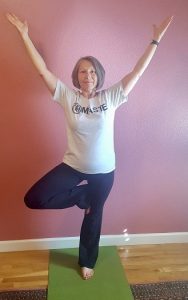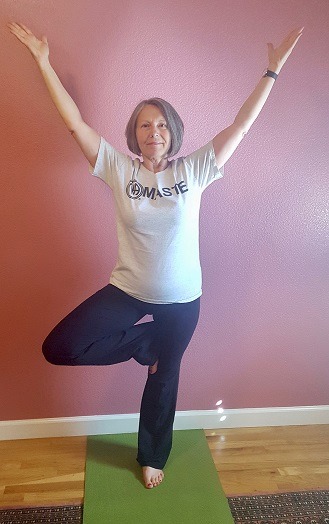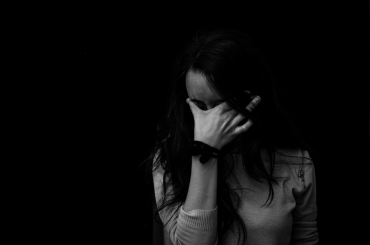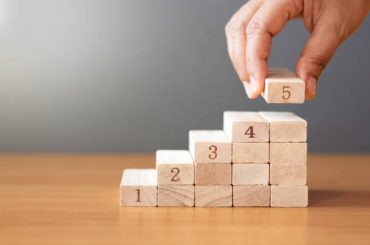
We can enter recovery early or late in life. We can start yoga when we are young or old. We can also combine the two early or late, in recovery or in age. The very important part of long term recovery and of long term asana (pose) yoga practice are similar- pay attention and adapt.
I am not complacent in my recovery. I am at a stage where my years in recovery are half of the years I have been alive. This means that the fundamentals of my recovery program, the basics of what I do to maintain my balance: mentally and spiritually, are seldom an effort. I have practiced the principles for some time. Life can become difficult, but that is the exception rather than the rule. Initially my life was full on chaos. Now, not so much. I don’t forget that disaster is just a drink, pill or fix away. In the intervening year I have developed more automatic tools now to live life on life’s terms.
I am not complacent in my asana / pose yoga practice. I need to pay attention every time I move. I have arranged myself in the poses many many times so one could say those fundamentals are effort free. I have the form memorized. However every time I step on the mat I need to feel my way through the pose, the transitions between the poses, the subtle movements of the body, the sensations and messages my body sends me when I rest.
CREATING A ROUTINE
The way these two practices remain automatic, or familiar, is practice. I don’t stop practicing. Meditation, asana, meetings, sponsees, reading, sponsor, breath practices, chanting; it all takes repetition and awareness. And as life goes on I adapt. Right now I don’t go to as many meetings as I did when I first got clean and sober. I go to more when I am facing something dicey. I don’t do as elaborate extensions in poses, nor move as fast as when I was fifteen years younger. I may add challenge when appropriate but listen to my body as I move. I move more slowly, I do less, when I am in stress. Just as I do in recovery: take more time, makes decisions slowly, rest.
AVOIDING JUDGEMENT OF GOOD OR BAD: MERELY OBSERVATIONS
As we age our world view changes. It has for many of the people I talk to; both in the rooms of recovery and in yoga classes. We have more years to look back on, more experience in the futility of force whether it is trying to control someone else or pushing through a pose. It doesn’t help and it can harm.
As an aging person in a youth oriented society one can feel isolated and less than. We don’t honor age as is purportedly done in some other societies. I am not (nor was I really ever) a beauty by society’s standards. I am less so now as I lose my waist and my skin begins to drape. This is a fact and it deserves a period of mourning. I am also less visible in meetings. When I attend meetings where I am not known I am one of those old ladies. I used to be the cute one in the second row – I myself at that time taking the focus away from an older person who, in turn, definitely had more wisdom to share than I. Now my function in the group has changed to elder statesperson speaking from experience rather than the fresh pain of the newly recovered.
The physical practice of yoga in the Western world has become a faddish form of exercise, done with booze and animals and on rock faces and in arenas. That is not the yoga of my tradition. It is not comfortable or familiar to me. It is the yoga of western youth. The yoga styles I practice are more yin oriented, gentle hatha yoga, slow movements and somatic sequences. I move into my body rather than punish and chase it with the idea of more.
THE TRUTH OF THE MATTER FOR ME
I am aging. I have learned that less is more. I have learned to slow down and listen to the sensation in my body. It has limitations that it hadn’t experienced before and it also has some flexibility I had previously been too impatient to develop. Yes, an older person gaining flexibility! I can now be in postures with less difficulty and discomfort that I could when I was fifty. There are also poses I no longer do. I believe the feelings in my body and trust that those poses aren’t for me.
I have a different relationship with yoga than that of an exercise. It is a road to my spiritual well being. I practice yoga to connect my body mind and spirit and to heal my nervous system. I practice asana/ yoga to help identify areas in my body I have been blind to as the result of accidents, surgeries and trauma. I practice yoga so I can learn what it feels like to engage my muscles with intention so I can also release them letting go of tension. That is the asana I now practice. It is healing my brain.
ADJUSTING TO A NEW REALITY
Aging in recovery brings experience, some calm and more awareness. Aging in yoga brings experience, calm and more awareness. It has been of importance to be in community, having friends with whom to share the process. In this, too, we benefit from WE.
These written words feel so graceful to me, as if one thing naturally led to another with no kicking, no screaming, no sadness, no grief. That is not the case. It is hard to change: change in any form or fashion. Something preferred, something avoided, but that is the process of life. To change. I am at a peaceful place after a shift into acceptance. Try me next week. I will have discovered age spots, more crepey skin and my asana practice will have hit a hiccup: a new challenge found. And I will begin the journey to acceptance and start again.








8 Comments
A fresh perspective on aging! Well done!
Than kyou Jeanne
A nice way at looking at aging, savouring what it has to show us
Some days I can hold myself dear- other days I fear the crone. Then I pause, reflect and breathe and the wisdom returns. Thank you for reading!
Thank you Kyczy for these beautiful words. I am going through many changes in my life right now, including retirement and moving to a new city. I a going to print out your message to remind me of the things that are important and to be gentle with myself as I learn through each new stage of my life. Your words are healing and encouraging. Thank you so much.
I am so pleased you are setting the intention to be kind. Change, even positive change, is stressful it is important to have remedies in place should we get tired or fall into old ways of thinking. (in this case “old” may not be so good )
)
be well
Very well done!! More people should look at aging this gracefully. I love what you said and how you write. As stated above, this is, “A fresh perspective on aging…”
Bravo!!
Cassandra
Thank you for your kind words. I am learning (again) to love myself as I am. Some days I do a much more skillful job than others!
be well